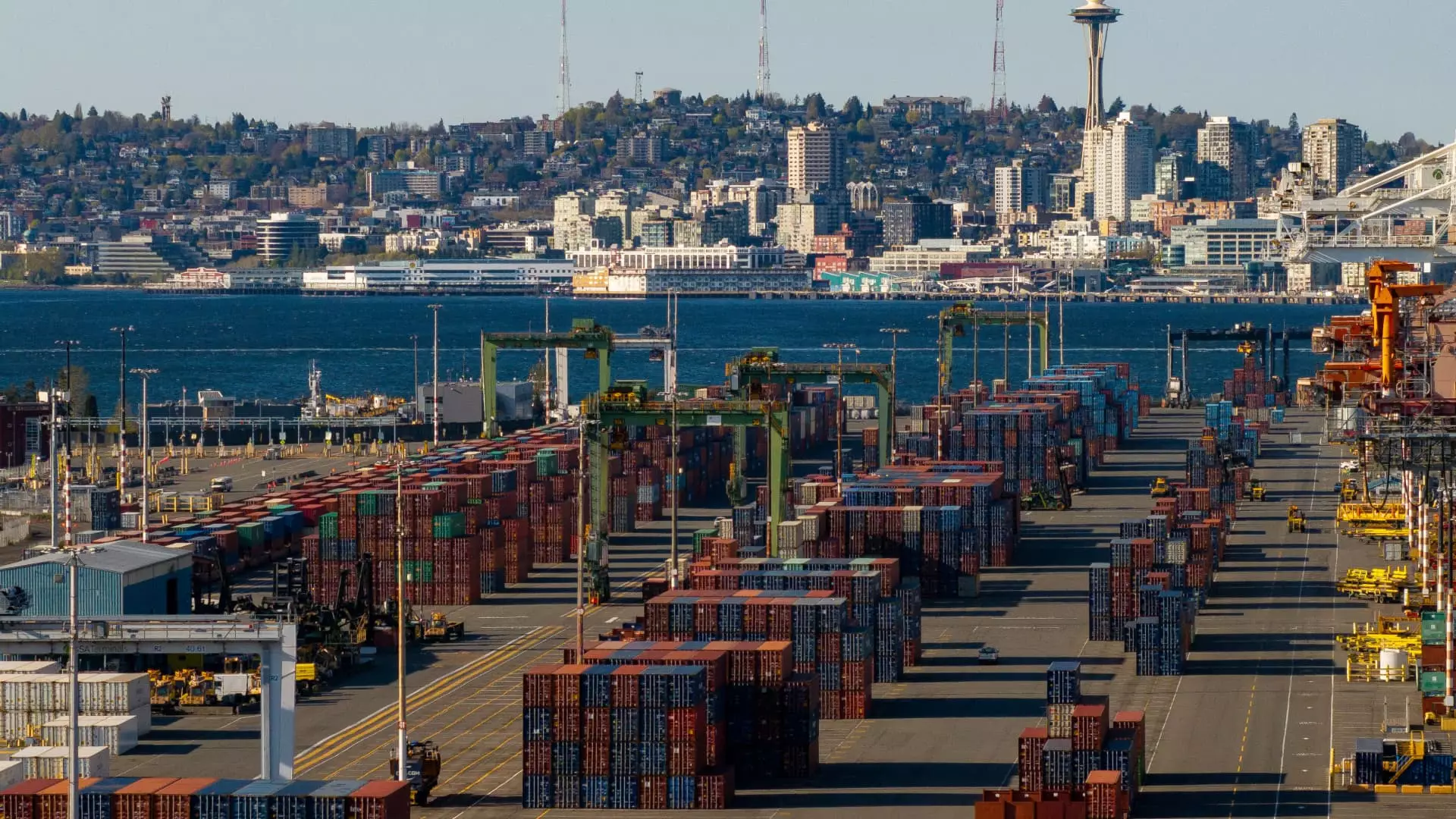When President Donald Trump first introduced tariffs during his administration, many viewed it as a bold move to protect American jobs and industries. However, a critical analysis sheds light on a troubling reality: these tariffs disproportionately burden the nation’s poorest households. Recent findings from the Institute on Taxation and Economic Policy (ITEP) reveal that the financial repercussions of these policies play out in ways that starkly highlight the inequities in our economic landscape.
Tariffs are essentially taxes levied on imports, designed to make foreign goods more expensive and theoretically encourage the purchase of domestic products. But this effect disproportionately affects low-income households. According to ITEP’s analysis, by 2026, families in the bottom 20% income bracket—earning less than $29,000 annually—will see an increase in their tax burden equal to 6.2% of their income. In contrast, the wealthiest 1% can expect a rise of only 1.7%. This gross disparity underscores the inherent regressiveness of tariffs; they penalize those already struggling to make ends meet while generating negligible consequences for the affluent.
The Regressive Nature of Tariffs
The economic impact of tariffs is particularly alarming when viewed through the lens of disposable income and quality of life. Consider this: food and clothing, which constitute a significant portion of a low-income household’s budget, are precisely the areas that are affected by increased import costs. In other words, tariffs function as a silent tax, driving prices higher on basic necessities while little burden is felt by those who can afford luxury items. The Heritage Foundation previously noted, “Tariffs are just taxes on Americans by another name,” a sentiment that perfectly encapsulates the essence of this issue.
This regressive taxation model does not just impoverish consumers; it perpetuates a cycle of inequality. While the upper echelons of society cushion themselves from these escalating costs, the lower strata face a mounting financial squeeze. Current economic theories cite that policies impacting disposable income will ultimately dictate quality of life for the most vulnerable. This poses a fundamental moral question for policymakers: is it justifiable to implement economic measures that exacerbate socioeconomic disparities under the guise of nationalism?
Retail Price Increases: A Direct Impact
Echoing the findings of ITEP, a recent report from the Yale Budget Lab indicates that the burden of tariffs is 2.5 times greater for low-income households compared to their wealthier counterparts. Retailers are already beginning to raise prices, passing on these tax burdens to consumers—a trend that will only deepen the financial woes of those least equipped to absorb such shocks. As Ernie Tedeschi, director of economics at the Yale Budget Lab, pointedly remarked, “Lower income consumers are going to get pinched more by tariffs.”
This raises further questions about the effectiveness and rationale behind current trade policy. Treasury Secretary Scott Bessent suggested that tariffs might result in a “one-time price adjustment” for consumers, combining tariff policy with broader economic strategies—including future tax cuts. However, the disconnect remains palpable: how substantial can tax cuts prove to be if they do not mitigate the price increases stemming from tariffs?
The Political Implications of Economic Choices
As we dissect the ongoing tariff policies, it underscores a pivotal point of contention in American politics: the intersection of economics and social justice. Center-right liberalism traditionally champions free markets and individual prosperity. However, the current trajectory of tariffs challenges those principles, placing a disproportionate burden on those who can least afford it.
With both the administration and Congress hinting at potential trade agreements and exemptions that could ease some tariffs, the path forward appears shrouded in uncertainty. The discourse among policymakers must shift towards recognizing the adverse effects these taxes have on the most vulnerable populations. True economic patriotism lies not just in protecting domestic production but in ensuring that all Americans can thrive amidst the complexities of global trade.
As we observe these evolving policies, it is imperative to keep sight of fairness and equity in economic discussions. America’s future vitality hinges on our ability to balance national interests with social responsibility, ensuring that no family struggles under the weight of policies designed to protect prosperity.

